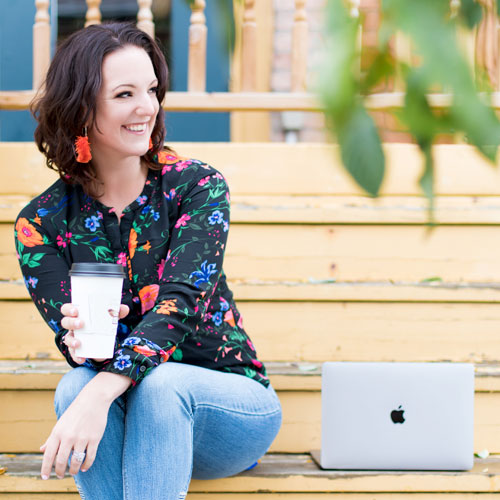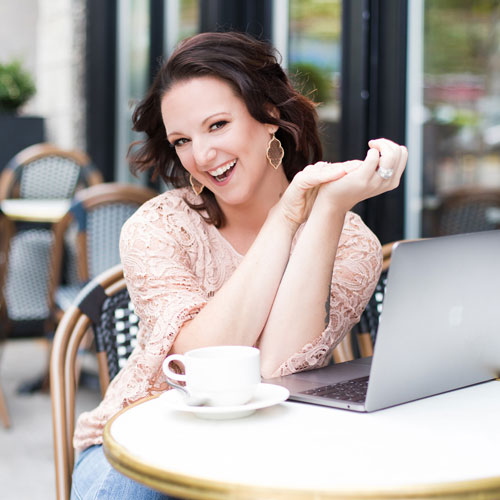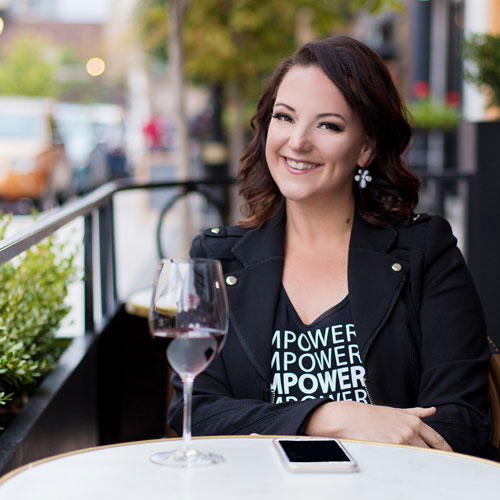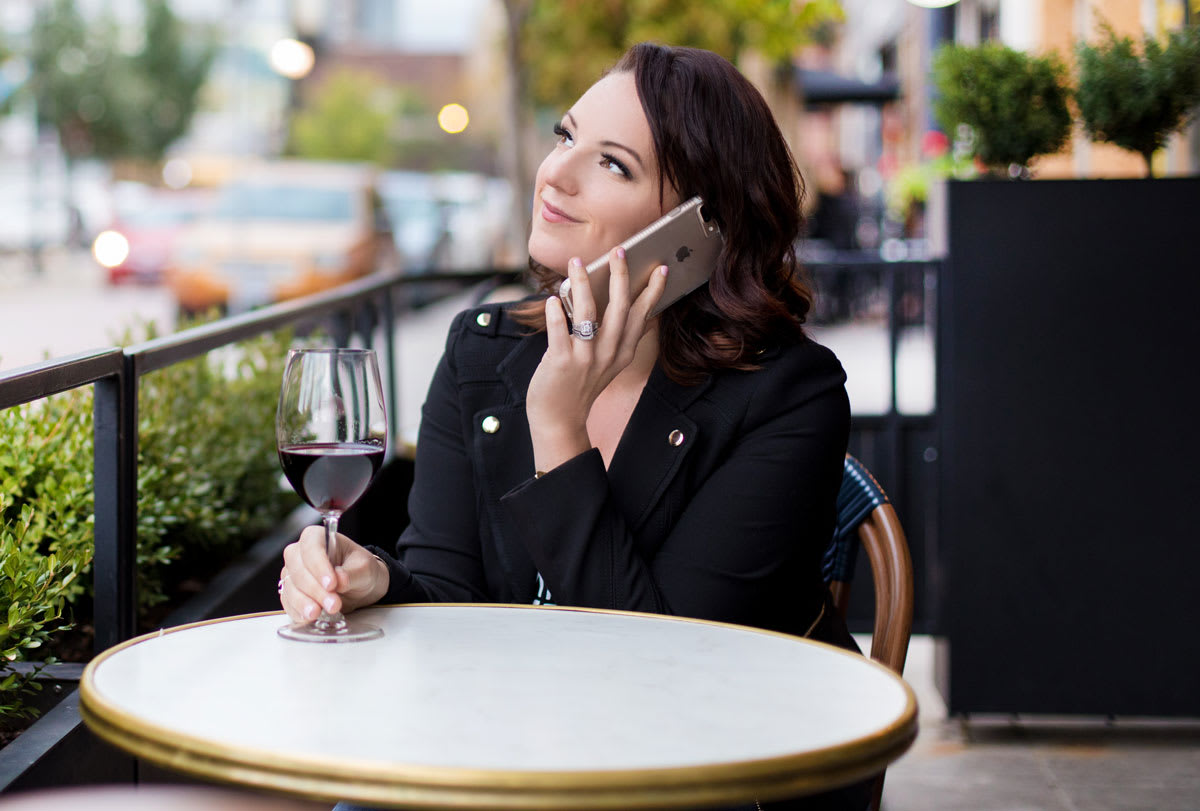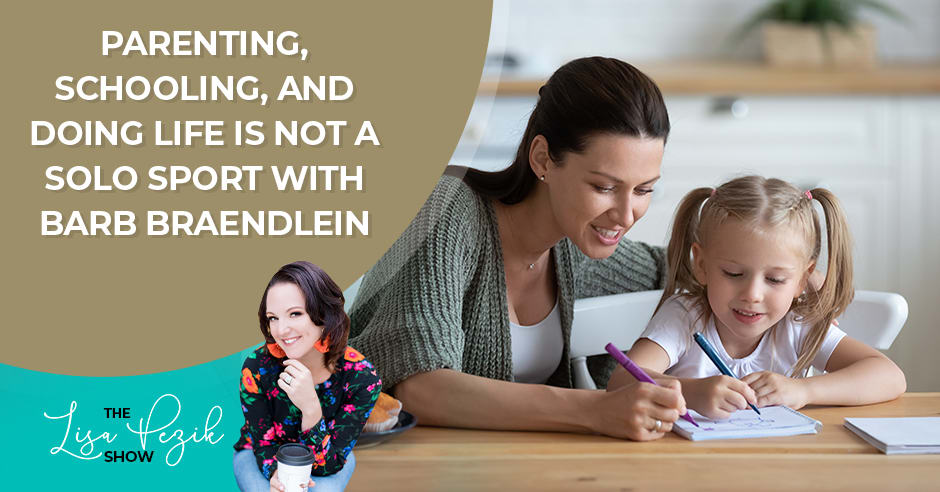
Being a mom was challenging enough, and so much so when raising kids with special needs. Author Barb Braendlein joins Lisa Pezik to discuss her experiences as a mom of four children with mitochondrial disease. She details her complicated life as a parent that led her to write the non-fiction book, Olive, with her true-to-life experiences being mirrored through the eyes of the non-verbal, medically fragile protagonist. Barb also shares how she and her husband dealt with grief amid the struggles of taking care of their children, and why she thinks homeschooling must be about the community you belong in and not just sticking to a rigid or standard structure.
---
Listen to the podcast here:
Parenting, Schooling, And Doing Life Is Not A Solo Sport With Barb Braendlein
Even though the show is named after me, you were going to know that it has nothing to do with me. It's about the amazing guests that I bring on. It's about strategies and systems to move your business and your life ahead, to have those a-ha moments, and then go and do something with it. I am excited to have a newfound friend, an author and FunkQuest competitor, my friend Barb Braendlein. Thank you for being here with us.
Thanks for having me, Lisa. I'm excited for this.
Barb is an author, an urban farm wife, and a homeschooling mom of her four special needs kids. Her writing seeks to shine light on the deep joys that are found in seemingly ordinary lives, the extraordinary that lurks in every corner of the mundane. Her new book Olive, released by Atmosphere Press, tells the story of the world through the eyes of a non-verbal, medically fragile five-year-old girl and is fiction drawn from her real-life adventures, raising kids with mitochondrial disease. I binged this book because I wanted to know all about Olive, and I wanted to know about your writing, Barb. I go through a journey in that book. I went through a journey of emotions and it was written in such a beautiful way. It was things that even I took for granted as a mom that are those insignificant little things that you see through the eyes of a child.
It was beautiful. One of them for me was when you were talking about how Olive was always wrapped close to you. Your heartbeat and that feeling being calming. I think about my own son and how much he loves to snuggle in. He still loves to cuddle and snuggle, which I love, and how comforting and safe that is for them. Especially as we're doing this in this wild time where the world is not safe in some places and there is craziness going on. I want to dive into the book and what made you decide to write the book?
People have been telling me for years, probably since I was a teenager like, “You ought to write a book.” I used to think that it meant that they saw some writing potential in me like, “You've got a future kid.” It took me a long time to figure out that it's code for like, “I find your life a bit overwhelming now. I'd like to exit this conversation. You should write a book.” Every time that I have sat down in the last several years to try and write this out, because I've had an interesting journey. I do have four kids with mitochondrial disease. We have moved fifteen times in the last several years. Things have happened, but when I would try and write it down as nonfiction, when I try and write it biographically, I get to the end and think, “Not even I believe this. This doesn't even seem plausible to me.”
The idea for writing it as fiction came from that twofold desire. One is to simplify what is a complicated story. I didn't want to write a book about mitochondrial disease. I don't want to write a book about the specifics of my health or my husband's. I wanted it to be something that people could pick up and understand something new about humanity, something that they would relate to. I found that fiction is like handing a camera to a toddler. You'll get all these great shots of doorknobs, carpet fibers, and things that you weren't looking for. It takes away all of the big stuff we look for.
It's no longer a picture of Mount Rainier, it's a picture of a thumb. That's how I viewed this story. It is written from the perspective of a five-year-old girl who cannot speak, cannot walk. She's dependent on her family for everything. It means where she is developmentally and where she is in her life. We don't know her parents' names because she doesn't know. She doesn't know what her dad does for a living. It's not in the book. We don't know names of doctors and medical conditions because as far as she's concerned, she doesn't have one. This is life. The fiction was freeing.
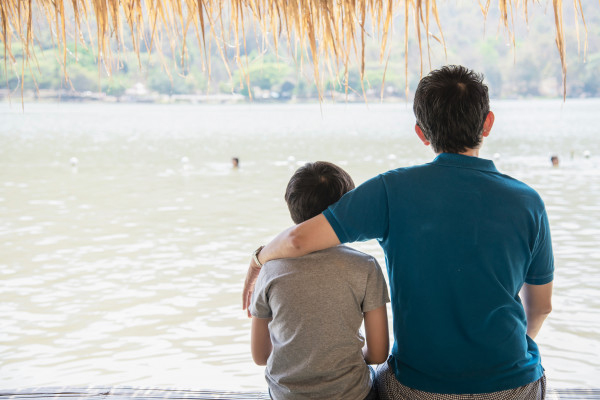
The book hits on what matters about everything. I remember even being a nurse, I was a nurse before I was an entrepreneur. I can remember it would always irk me when they would say, “Patient in room 47 needs.” That person has a name. That person has a family. That person has a story. They're not number 47. They are a human being. I love how in the book you don't tell us how to feel. You paint it through the eyes of Olive like, “I know the look on mommy’s face when mommy doesn't like that person, or mommy's upset with that person. I can tell by the way her eyes look, or by the way she is looking at that person, or by the way mom smell, or the look on dad's face.” That's through the eyes of what kids see and what they take in. Whether they have a mitochondrial disease or they're non-verbal, or they're fully functioning. Kids pick up on those kinds of things. You talked about things in that book that even hit home for me. I was mad at those kids through the bullying incident of the kids at the park that threw the bark on Olive. I was mad when I read that. Was that a true scenario that happened?
The story is fiction, but I drew from actual experiences and that was one that had happened. She was younger than five when it happened. She was not able to walk. That was the first and last time that we ever did a playgroup. I was so upset. She's several years past that now. I look back and I think what it was. I was realizing that none of these other mothers had to pay attention the way that I did. It wasn't only that they were hurting my kid, and that if I went back to playgroup, I probably would have ended up in jail. There was that. It was the realization that we are living a completely different world. I could not relate to young moms. There were things that I thought, “How are you not seeing what your little tyrant is doing to my kid?” At that time, her health was unstable that I had to be watching in a way that I don't think you maybe have to.
You were in that constant protector mode. You had to be the mama bear or the mama wolf. You had to be the eyes and the ears always looking at the scenario and the surrounding. You bring up a good point that sometimes there are conversations that parents need to have with kids, and they don't. About kids that look different, sound different, speak different, have different color of their skin, kids that aren't looking, talking, sounding, functioning like them. How do we include them? How do we ask questions instead of assuming and making fun? Oliver has a friend in his karate class that has some psychomotor. She's a lot slower. She moves slower and uncoordinated. Oliver’s like, “Why does she do that?” I was like, “Why don't you ask her? Ask her and talk to her about it, have a conversation.” Instead of thinking, saying or assuming, I'm like, “Ask her how she feels. Ask her why that's hard for her, what goes on in her brain or what's she thinking.” I'm like, “Open up a conversation.”
Kids can. Kids have this capacity to be accepting of whatever you tell them. My oldest two, each have feeding tubes. They're both tube fed. There have been multiple times where they're willing to do a feeding for playing at someone's house. We as adults do the whole avert the eyes. We're going to pretend this isn't happening. I’m like, “They are syringes. You can't pretend this isn't happening.” Kids will come up and be like, “Can I do it? Can I push the syringe?” My girls are great with that they’re like, “Yes, let me teach you exactly how to do it and what it feels like.” It ceases to be a difference between them. I am struck watching them that there is power and being willing to assume that somebody else has thoughts too, that they have an experience.
Sometimes, especially in cases where there's either non-verbal, whatever the thing that is hindering, not able to communicate what they're thinking. It's easy for us to assume that they aren't thinking and feeling what we do. That's something I wanted to break through in writing Olive. I wanted people to be able to see that this child that didn't speak for a long time and she continued to have difficulty with speech, it doesn't mean that less is going on. It doesn't mean that it's not worth taking the extra time to listen to it, to find out what she's thinking. I enjoyed writing it from that perspective so that we could see that something else is going on here.
Also, that they don't understand. That's always the misconception. Back to nursing again, I can remember even where I would have people that would have trouble speaking or would have trouble talking, and I would be shouting at them. They would write and they'd be like, “I'm not hard of hearing, young nurse.” I'm like, “I don't know why I assume that because you can't speak, you can't hear. I don't know why I'm shouting at you.”
It’s human nature.
We miss out on the world around us just because we're so busy looking at what it's not.
Unless you are willing to learn and you're willing to open up a conversation, and you're right, kids don't know bias. They don't know they are weird or different unless someone tells them they're weird or different. I remember even when Oliver was coloring the tan crayon, he would be like, “I need the skin color crayon.” I'm like, “We've got to have a talk about that.” There are all different colors and skin types. We have the conversation about it. Now he knows, he'll catch himself. He'll be like, “I need the tan color. I need the brown color.” He gets it now because we had a conversation about it. I’m not saying good, bad, right, wrong, but so many parents don't want or know how to have a conversation, or they have their own biases, “Why is that kid with my kid?” Weird stuff. I stayed away from mommy groups because there was a lot of, “If you don't breastfeed or if you do breastfeed, cloth diaper.” There are a lot of opinions and judgments.
There's something about the whole young mom season of life. I don't know if it's more hormones or that we need to feel like we know what we're doing because it all feels like we don't know what we're doing. I have been struck in raising these kids, but also with the book and interacting with other people, “How much I do this? I don't want to make them uncomfortable. I don't want to say something that makes me look stupid.” In the end, if I look back at it, my attention is entirely on me like, “How comfortable am I asking you, what's going on, how you're doing?” There's something to be learned there from kids in their bluntness. Here, we're trying hard to make sure that we don't hurt feelings. They are able to sometimes make connections that I don't as an adult at their willingness to learn about another person. I find that uncomfortable to see in myself, that it's easy for me to do the same thing and assume that I don't understand it.
They're in tune. That's what that book helped me see. They pick up on every sound, every expression, every nonverbal. It's interesting because all of it is non-verbal, but they pick up then on all those non-verbal feelings and things that are happening in their world. Kids are receptive and they're smart. That was what I got out of the book. I'm like, “Olive is smart.” She is receptive. She is there even though she is frustrated that her legs can't move a certain way, or she can't speak the words that she wants to speak. It helped me see the innocence of children that we forget about. When you were writing about when you were pregnant with the second. In my brain, I'm like, “Is Olive going to like this or is she not going to this? Is she going to be jealous that maybe mom and dad aren't going to be there for her 100% of the time?” Olive thought it was the best thing in the world that she had a sister.
She doesn't pay attention through most of the pregnancy. She knows that there's a thing going on, but it's not something she's giving a lot of attention to. It's not real yet until baby's there. I enjoyed writing her as a character even though in part because I got to live with the real thing. The thing that I was so struck with in watching my own kids, and I hope it got conveyed in the book, is that she did not ever view herself as sick. Sometimes we get attached to this idea of normal like, “This is what my life is supposed to look like. This is where I thought I would be now.” We're all coming off of 2020. Plenty of us thought that there were things that were going to happen that we didn't expect to be where we are.
My kids did not realize that they had a genetic condition. We’re several years of feeding tubes. This is normal. This is what our life is like. They eat and sleep differently than other people. I feel like there's something there that is probably been the biggest takeaway as a special needs parent. Your life does not have to be normal to be good. We have this tendency to spend so much time doing the support group thing, doing the, “How do I cope with what I'm being given,” instead of saying, “This is what I have and I'm going to like what I have. I like my life.”
If we can get away from the picture in our heads of what it's supposed to be, then we can start looking at what it is and seeing. Look at the world through Olive’s eyes because there's still beautiful colors everywhere and there's still light. Yes, she's not walking, but she's getting where she wants to go. She's experiencing the world. I wonder how much as adults that we miss out on the world around us because we're busy looking at what it's not.
I love that you said your life doesn't have to be normal to be good. That is so true. That was one of the biggest things reading that book. It put it in perspective about what matters in life and what you make of things. You always have that choice to say, “I don't have this. I'm missing out on this. This is my situation. This is what I do have.” This is the beauty of what you do have.
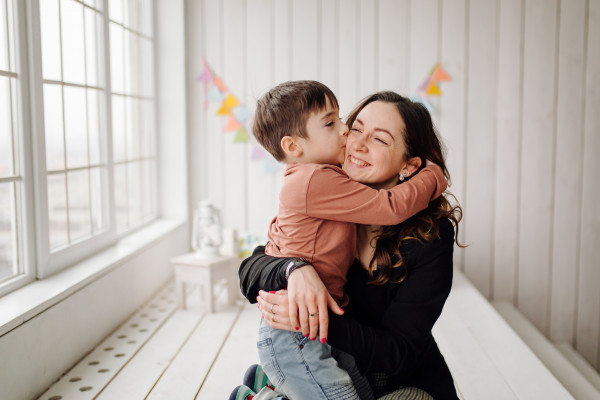
We had to hit some points in the early years of having kids with special needs. We made a lot of mistakes. I remember holidays in particular, this picture of what we do at holidays. You get together with all the family. At the time, my kids got sick easily. If they got sick, we were at the hospital. We're talking weeks of recovery. When we were finally able to detach a bit from the picture of what we thought was normal, and we had more isolated holidays, we have more traditions than anyone that I know. It's important because we were able to finally look and say, “This is what we can do. This is what we do have. If I can get away from the picture in my head of what it's supposed to be, I can love what I do have.” That became the theme of our life. There is something that we're celebrating every single day. I took a lot of grief in the early years.
It's a grieving process to see the picture of what you thought your life was going to be implode. Plenty of people have their own thing where it's like, “That went away. The thing that I thought was going to be my life is not anymore.” When the grief passed, it's amazing to be able to look up and see that we have a life that we love. It's not just that we found ways to cope. It's that these things that made us hard at the beginning are the things that have made them great, that has made our family life, our work. The choices we've made have been different than if they had not had these medical conditions.
I liked that you addressed that the grief is there because I think that's BS to always be happy and always be this poster child of, “I got all my stuff together and I am the perfect mom and look at me doing all these things right. I'm inclusive and loving.” I'm sure there were lots of days where it was like a puddle of tears on the ground.
I drove people away for at least two years. My kids were not expected to live longer than maybe a year. My way of responding, I could not handle people coming and saying all the right things to me. I remember being in the emergency room and having to check in, and having some well-intentioned registration person say, “You know that these babies must have looked down from heaven and chosen you as their special parents.” I remember thinking, “You do realize that isn't good news. They looked down and saw me and said, "That person needs work. We should give her four of these medical conditions,” like that makes sense. People say things like this.
Maybe had I been in less grief, I would have been more able to take the good, leave the bad, and as it was. I felt like, “I’m done talking to people.” People are discouraging to me. I look back and I messed up relationships from those years that I'm still trying to fix because grief is a real thing. The grief was essential. My kids lived. It's not grief like that. They're still alive. Anytime that we have that loss of what we thought our life was going to be, anytime that we have that major shift where you got to adjust, you're onto a new adventure. Even if it's when you're excited about, there is an element of grief that's worth acknowledging. There's some mourning to be done. Even if what you're moving on towards is better, maybe you liked what you had.
When I hear people say things like that like, “God chose you. What a blessing in your life.” Even when people die, they say, “Now they're back with God. Their purpose on this life has been fulfilled.” Everyone wants to make it okay.
It hurts.
There is a lot of pressure that happens in the best-intentioned ways.
There are times when it's not okay. It's okay to not feel okay.
That was something that I had to come to over the course of years. It was that grief was necessary. When we first got diagnosed, my oldest was nine months old and we found out we were pregnant with the Winnie character, who in real life is Holly, the grief was enormous. We were sent home from the hospital again with this child that she became infant-like overnight. She couldn't hold her head up. She couldn't move her arms on her own. She didn't sleep. She was unable to fall asleep. We were having to sedate her at night. It was a difficult time. Back in those days, I did a lot of jazz piano and I played in a band with a guy that was in his 60s at that point. He came by the house and told me a story that I remember thinking, “This is horrifying. Why would you tell me this now?” He was telling about these friends of his that had lost a child. They ended up divorced because they each thought that the other one was not grieving as much as they were because they grieved differently.
I look back and this man did me the greatest kindness probably out of anybody at that time in my life. He pointed out to me that we grieve differently within a marriage. As people and friendships, we are not going to grieve the same. There are not a lot of rules about how we grieve. My husband needed people. I did not. Had we not gotten that nudge into our thinking, he could have looked at me and said, “She is cutoff. She's not dealing with things.” I could have looked at him and thought, “Why aren't you more upset? How can you handle people coming in and saying all the wrong things to you?”
By allowing each other to grieve and by giving space for that person that you love to grieve, what it ended up doing was we grew stronger through our marriage in those years. We grew to pay attention in different ways. It's not just that there's going to be grief. There's going to be grief, but it's going to look different. He might need to go gardening when I think that you ought to be sitting and crying. He might need to go gardening because that's how he's surviving the grief. I owe that man probably a fruit basket.
I never thought about it that way with grief. Two people could be experiencing the same thing but experiencing it differently.
How much that can hurt us. Grief can be lonely, even if it's a grief, I always feel a bit funny putting it this way, because my kids are still alive. It almost feels like I'm not justified to have grieved for that long, but life was turned upside down. We went the next decade or so without ever sleeping. There were things that got harder. What it did relationally for us to have to learn to pay attention, I'm glad someone pointed it out to me because that is something that causes a lot of strain in marriages with special needs kids, maybe in marriages in general. We don't see that because they're parenting differently, because they're processing differently, because their response on the outside is different, we think that somehow, it's not as deep, that they don't care as much, that they don't feel as much love. We fill in the blank of what our mind jumps to, but we recognize our own emotions. I don't think we're great at recognizing other people's emotions.
Did your husband read the book?
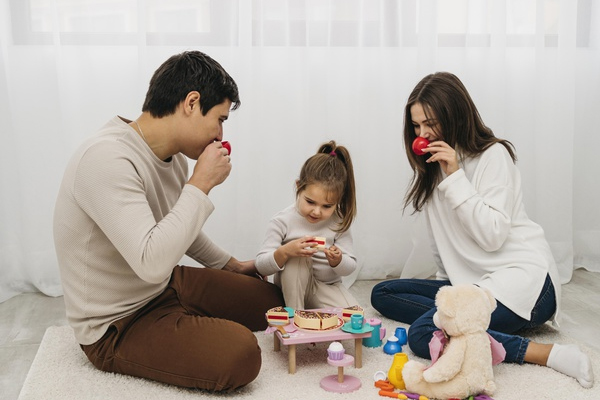
A portion of it, yes. It was a hard read for my husband.
Did he go back and say, “That didn't happen that way? I didn't want to relive that.” What was your experience with the book?
He read it slowly over time and read as I was writing it. We were at an interesting point in our lives when I was writing it. There were things that we remember differently for sure. The biggest thing is he got to the end and he's like, “I look good in that book,” which is true, he does. That's who he was. Somebody told me later in a review that it seemed I unnecessarily propped up the dad. Nope, that's what he was like. That's how we got through those years. It was an emotional read for him. Even though it is fiction, there are things that I changed about it, there's enough that's real to our life that it was hard to write. It was hard for him to read. It took us back to some tough times.
There's so much power in writing. Even if you don't ever plan to publish it, if you don't ever plan to let anyone read it, there's something healing and powerful about putting words on paper. That means something to you.
The act of naming something. One of my daughters deals with OCD and there is something about naming what the anxiety is, naming what the compulsion is. It shines light on it. Nothing is as scary when we shine light on it. I feel like writing is giant light bulbs. It's the opportunity to put the experience on paper like, “You have a name now. You are not the thing that haunts me at night. You have a name and I've put you where you belong.” You're part of a bigger story.
My husband and I had that with our little guy. Our little guy has separation anxiety. He spends 24/7 with us. Whenever he can't be with us, it's tears, fear and worry. He loves mom and dad. People were saying well-intentioned or people saying, “You need to cut it off and be tough with him and give him tough love.” Everybody wants to jump in and find a solution. I'm like, “No, he has separation anxiety. We need to call it what it is. We need to get help on how to navigate this.” He is loving life now because there is no separation with me. He is with us 24/7.
My husband was afraid to have a “label” to make it something, but unless you make it something and call it what it is, it's always like the elephant in the room. It's always that thing that plagues you. It's always that uncomfortable thing that you don't know that you have shame around. I was like, “Honey, he has separation anxiety. It doesn't mean we're bad parents. It doesn't mean we failed him.” When you can open and talk about it, it becomes less shameful or scary or overwhelming. I would imagine around the same thing with kids with special needs like, “Did I do something wrong, or should I have done this?”
We're all gifted at things that are necessary to the world. You have something that the world needs.
There's a lot of pressure that happens in the best-intentioned ways and our parents in general. There’s a lot of, "This is what good parenting looks.” We experienced that with the early years of being told that they needed to be in a public school system. There are services there that they need to be at. We've homeschooled from the get-go in part because of medical needs and in part because I saw the best of teachers is not going to be able to figure out what I can one-on-one with my own kid. She's got 25 people in the room, that's impossible. There's so much pressure. You start to see, suppose your kid struggles with something, suppose there's anxiety, does it mean that you screwed it all up? Does it mean that you should have listened to all the voices that said to do it? There's a lot of built-in pressure. That shame gets lumped into that. Naming it at least gives us a start. It's a launching pad.
Tell me about homeschooling these kids. People are questioning with this landscape that we're in. There are a lot of biases about homeschooling as well.
The whole, “Why do they pull their socks up to their knees? They can't talk to people.”
“Your kids are weird. They're not sociable. They don't know how to get along with other kids. They are going to be far behind,” which is all BS. Someone's pre-imposed fears that have now become Facebook truth. It’s like, “My friend was on Facebook. It was the real deal.”
They told me all about who won the election and all about everything. The thing is most stereotypes come from something. We knew homeschoolers several years ago were like that. The thing that I wished that I'd understood going into it for myself and that maybe would help your readers. Remote learning looks the hardest thing I've ever seen. That is not homeschooling. Homeschooling is way easier than that. You get to find what works for your family. Sometimes we get boxed into this idea of schooling. Schooling to us means that we're going to spend eight hours a day in a classroom, and that there are going to be a break at a certain time.
When we think homeschooling, we think that must mean eight hours at the kitchen table and they never see friends, and they don't play sports and they're weird. I'm sure people can do it that way. That's fine. It has not been my experience, but you could. The thing that I am starting to see more and more now that all four of my kids are being schooled now. Your home, it's already an educational environment. If you're deciding to homeschool, you're deciding to do that on purpose. That's what it comes down to. We have spent years and we're not done. We're going to keep finding out what curriculums work for us because that's their job. We don't live for the curriculum. It's there for us. I find where my kids’ strengths and weaknesses are. This one, she's a good writer so we ought to have more writing. Let's find a way to make her history a huge amount of writing.
The reverse is true. One of her hands shake. Writing is hard, but she can recite things, she can sing things, and she can read things. When we want to learn nouns and verbs, we recite it. We put it to a song because we can. There are many parents now that are seeing the difficulty of remote learning like, “This is a mess.” Maybe school was a mess before, but you never would have had to think about it. It was what we did. The fact is homeschooling is how you educate your kids. If you are a small business owner, if you're an entrepreneur, maybe your schooling looks different. Maybe it happens in the evening. Maybe it involves having the retired gal down the street come and teach French to your son. Successful homeschooling means community.
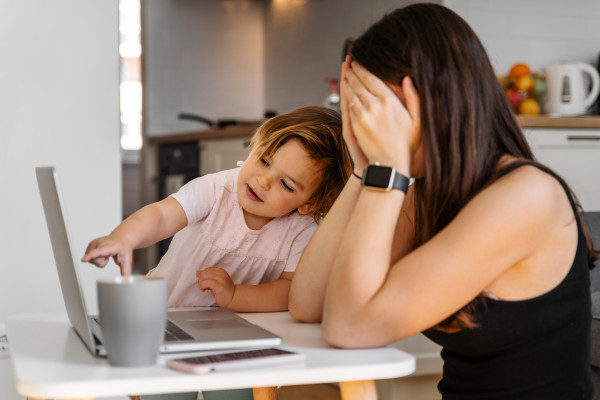
I don't have to be brilliant at Algebra. I have to be connected to people that are brilliant at Algebra. I would not have known to go looking for them if I didn't have the need. The biggest myth that I see is, “That works for you. I could never do that.” You're not going to do my kind of homeschooling. You're going to do yours. You're going to make sure that your kids can read, that they can function in the world. You're going to teach them how to think. That is going to be refreshing after what we've been doing in public schools for a long time. We don't spend eight hours a day schooling. We spend about 3.5 to 4.
It's flexible. It's not this push and this force. It's not this, “This is the way we've always done it so this is the way we're going to continue.” It's adaptable.
We got sunshine outside, so they ran around outside before we started school. That meant that we started a half an hour late. They came in with clearer heads than they would otherwise. I like having the freedom to do that, to be able to look and say, “What is going to be best for us today?” It turns out that all of my kids are more friendly than I am. Socially, it's what you decide to do. You want your kids to play sports, go put them in sports. There's nothing to stop you. Pay taxes, go join your local sports team when they do that again.
I have some parents, because we're considering or we're on that tether of going homeschooling. I have some parents that paint you in the loveliest light like we never make mistakes, “You're patient and kind.” I'm like, “You should have seen me an hour ago.” It’s like, “You're lovely, patient, creative, kind and wonderful.” They think we have it right all the time. I could never do that. I don't have the personality and the patience. Do you think there is truth to that? That if mom or dad can't deal, should they not even consider homeschooling?
Option C, with a caveat. If you are an abusive drunk as a parent, shame on you, go to jail anyway. That’s not what we're talking about. I'm not saying that abusive parents should pin their kids at home. If you're talking that personality wise, you don't feel like you're equipped to be a teacher, then maybe what homeschooling looks like for you is recruiting your community. One of the best homeschooling situations that I know of personally involves a neighborhood. There are three homeschooling families, and the kids will walk from house to house because one of those moms is brilliant at English, and the other can teach little kids to read, and the other one can do math projects. The thing about homeschooling that is probably a misconception that I would say to those parents that say, “I can never do that.”
You can do something, and maybe your skillset isn't being the one sitting and explaining. Maybe your skillset is being the one that finds the people that come and do this, love it, and do it well because we're all gifted at different things. We're all gifted at things that are necessary to the world. You have something that the world needs. That means that you have something that your kid needs educationally. If your big problem is patience, then maybe you need to be homeschooling because patience isn't something that shows up until you work at it.
I've loved that you said homeschooling is about community. I never heard that before.
Fear is a bad decision-maker.
There are co-ops. There are many ways that you could do this in a communal way. Start the conversation, you will be amazed at the skills that the people around you have sitting there. Retired physicists that are like, “I love doing math with little kids.” It happens all the time, but it requires us getting outside of our picture of what is normal and asking the question like, “Is there someone here that can do this alongside?” All of us love to be using our gifts, which means that that physicist down the road, he's his best self when he's getting to use that gift too. It's not a burden that you're taking. You'll have something to offer them. They can have something to offer you. Barring the ones that belong to jail, don't pass go, but no parent should be writing this off because you got to be able to take an honest look now at schools as they are now and say, “Are you telling me that you can't do better than that?” I don't buy it.
I have some fantastic friends who are fantastic teachers, and I'm like, “You are not the norm.” I'm not saying all teachers are bad and all schooling is terrible, and the system is broken but it is. There are things that need to be looked at and upgraded. Until more people homeschool or more people retire, and new teachers get in there, things aren't going to change. As parents, we forget that we have the choice to homeschool, to pull them out of school, and to be flexible. That's a big thing with homeschooling too. People think it's a solo sport. All the pressure. I have a friend who's a homeschooling mom and she said, “I love it.” She said, “I worry that if they don't get it, then the responsibility falls on me like I’m a bad teacher or I didn't do my job.” People equate homeschooling with solo like you are responsible. It's not. It's community.
We got to remember that fear is a bad decision maker because I get that. I remember at some point during 2020 thinking, “This is finally the year that it all evens out. I'm not going to worry about my kids being bind anymore. Let’s get done being in school.” That's a real worry. I worry that I will ill-equip my kids. The further on I get into this, the more I realize, “You're a mom, you're not God. You can't control everything. What you can do is do the work faithfully.” School them in your imperfect way. Remember that this isn't so much about kids being schooled as it is educating them. Education might mean that they go with you to your small business. Education might mean that you're going to teach them how to farm alongside you or how to do sales or how to write. Educate them, don't school them. Public schools can school them. This is what it looks like. It looks like teachers sniping at kids who show up a minute late on Zoom. Go follow Lisa on Facebook.
Have you ever watched Red Table Talk with Jada Pinkett Smith and Will Smith? It's on Facebook as well. It's a watch show. They did a Father’s Day special. Will Smith was talking about his dad who was abusive and a drinker and had all these faults. He was saying the one good thing is that his dad would pull him out of school regularly because his dad said, “You will learn more about the world by being next to me, tinkering with cars and having conversations with mechanics or doing things with cars.” He said, “School is everywhere. Education is everywhere. Everything is education. Everything is a teaching opportunity. Everything is a learning opportunity.” That was my biggest takeaway.
That’s so true. Our son is learning when he's in school, but he's learning so much more about the world by we taking him everywhere. We go to masterminds. We haven't been anywhere lately, but when we do mastermind trips. He’s in airports and he's seeing mom’s speaking on stage. They're receptive. He's seeing the way we do business and how we live. That takes the pressure off when you realize that they learn so much more outside of the structure of school. It makes me think back in the day, I think of my mother-in-law, how she was saying when she had my husband and her kids. It’s like two doors down, Jane gave her the crib, and three doors down, someone gave her the highchair and this one babysat on this day. Your community became your support system. That made me think of that when you said homeschooling is community.
You'll be amazed if you start putting out feelers. Put a post up on Facebook, you will be astounded at the homeschooling families that are ready to share this experience with you. Nobody that I know is doing it solo. For me, I have my mom. My mom is my best idea person. I look back at the major educational successes that we've had and I'm like, “That was her idea too.” You don't have to go far to find someone that is smarter than you. I don't have to go far. Homeschooling is not solo. This is all on me. All of my decisions are the end of the world for a long time with raising special needs kids. Those years that we were in the hospital all the time, that pressure, I’m about to snapped. It's fun to me to finally get to a spot where I can see like, “No, we have support.” There's another way to do this. If what we're doing isn't working, change it. You're an entrepreneur. This is like breathing to you. If something isn't working, you do something else. It's true with education too.
I'm in awe of you. I love your book. I love what you're about. I love your life. I know that sounds weird to say that, but I love the way you live.

I do too. Thank you.
There are people that are surviving. It's almost like we talked about that your life doesn't have to be normal to be good. There are people that are surviving and there's people that are living. I love the way you and your family are living together.
I'm thankful. My least favorite word in the world is “overwhelmed.” That is the thing I don't ever want to be. You don't have to be. This is what we've got, and it could be great. I could look at it and say, “This is great. We're stretched thin. We aren't living like other people.” I don't want to get to the end of my life and look back and feel like I spent so much time being stressed over it that I missed it. I don't want to miss this. There's too much that I think, “Please don't let me forget this. Let me stay present for what's happening now.” Will it last? I don't know. Will my kids stay stable? I don't know but I like getting to be here now. I like getting to see now.
Where can they get the book? Where can they get in touch with you? Everybody, please read this book. It's good. I binged it in 2.5 hours, maybe three hours. I'm not sure. I couldn't put it down. There were many good moments in this book. Even about the part where they got their legs moving and they kicked over the Christmas tree. I don't want to give away too many details with the book.
It was a true story though, that happened. Fishing line is how we got the tree fixed. Go get that book. I was tickled that you read it. That makes me happy. You can find me on my website. If you can spell my name, then you're ahead of most of the population, but it's BarbaraBraendlein.com. You can get the book on Amazon. You can get it from Atmosphere Press, it’s my publisher. Go to the website and you'll find all the things. You can hear me on The Deciding Factor Podcast. Drop me a line. Tell me what you think.
Barb, I know that our work together is not finished. Readers, you'll be hearing from Barbara again because I love you. FunkQuest. You go on this show. It's a podcast. You don't know what questions you're going to get asked. You got a minute to be funny, fun, creative and wow people. It's wild. You win the title. There's no money that you win. Me and Barbara are fierce competitors on this thing. I'm going to put the FunkQuest stuff in there. Go vote for Barb when you see her on the show because every vote counts on that thing.
For real. We count your votes. It will do something.
Your vote matters. Barbara, thank you for being here with me. Readers, thank you, and we'll catch you next time.
Important Links:
- https://BarbaraBraendlein.com/
- https://www.Amazon.ca/Olive-Barbara-Braendlein/dp/1648261078
- FunkQuest
- Olive
- Atmosphere Press - Olive
- The Deciding Factor Podcast - Apple Podcasts
About Barb Brandlein
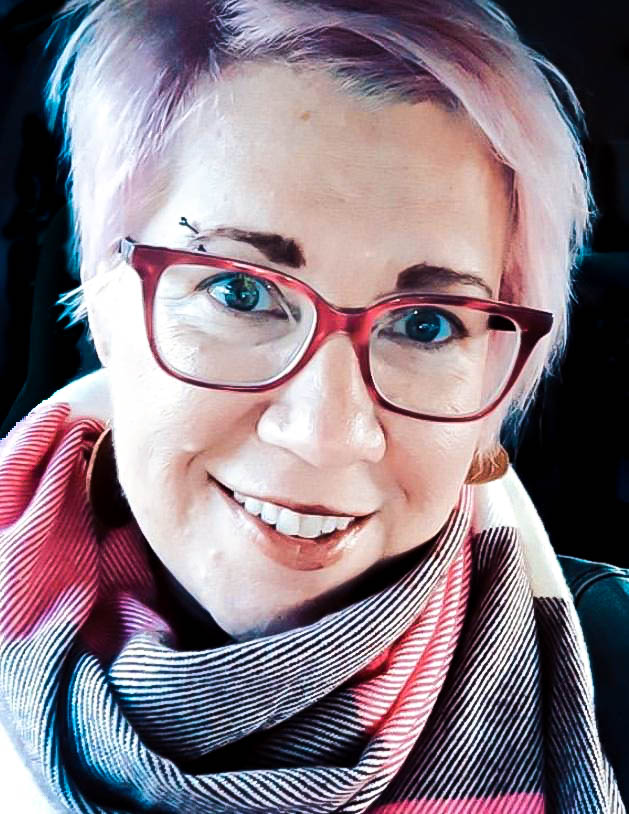 Barbara Braendlein is an urban farm wife in the Pacific Northwest. She homeschools her four children, and her stories draw on their experiences living with mitochondrial disease. Her writing looks for joy in the ordinary, for exceptional in the mundane, for voices yet unheard.
Barbara Braendlein is an urban farm wife in the Pacific Northwest. She homeschools her four children, and her stories draw on their experiences living with mitochondrial disease. Her writing looks for joy in the ordinary, for exceptional in the mundane, for voices yet unheard.

